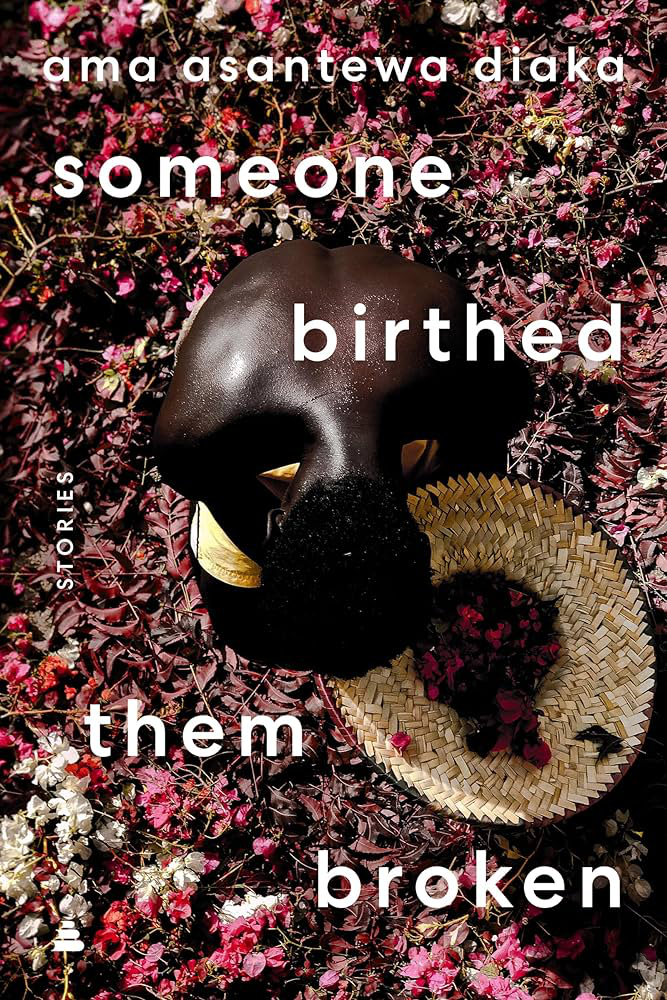
the year i turned twenty-three
BOATEMAA
An exaggerated puff. That’s what my mother described me as when she was speaking with her friend over the phone. She drew a large mound of breast on her chest as she spoke, as though the person on the phone could see her gesturing. The minute I hit puberty my mother started dressing me like she was storing hot food in between layers and layers of leaves, as if she was trying to hide my body from the world. The kids in my school called me Breastina Naa Forfor Forson and Miss Lolo. Some of them even called me surplus, because according to them it wasn’t so much that big breasts were suddenly a weird phenomenon, it was that the rest of my body did not correlate with my chest. What even were 34F boobs doing in a size 0 body? Once, because he couldn’t remember my name, Mr. Osei, the social studies teacher, called me Breasticles. But exaggerated puff? That was new. It was said in a tone of wonder, like she couldn’t believe I was her daughter. Couldn’t believe a body like mine came out of a body like hers. She had told me before that if we didn’t share the same gnarly map of a birthmark on our wrists, she could’ve sworn I wasn’t hers. My mother came from a line of petite women with small breasts and bodies chock-full of anxiety. Was it the time she saw the love letter Kojo Gaisie wrote for me on Vals Day? The one that had “Your breasts are like two fawns, like twin fawns of a gazelle” in it, and he swore my breasts had turned him into a poet like he didn’t lift that phrase word for word from a Song of Songs verse. No matter what I told my mother, she was convinced I was in school lifting my blouse for boys to see. Or is it anytime she calls me more than three times and I don’t call back within an hour? Anxiety was good neighbors with my mother and nobody could easily tear them apart. Not even my father, a soft sac of a man who had yielded so much to my mother’s insecurities they had morphed into his original thoughts. He only protested her excesses over his autonomy, but when she projected her anxieties on me, suddenly, her word was bond. Anxiety racked my mother’s body well; it started as pain pummeling her chest, and manifested visibly as a running stomach. At least twice every month, something I would do or say, or not do or say, would give my mother anxiety. I wasn’t sure if it was her anxiety or if it was that my body had an etched “need to be overprotected” sign on my forehead, but my mother was very very overprotective. As a child I was rarely out of her sight, closer than her handbag. The only reason I spent all my primary education at Albright Academy was because it was a ten-minute walk from our house in Kasoa and it gave my mother comfort that she could pass by anytime to check on me. I didn’t go to boarding school because the thought of her not seeing me for days and days on end was unbearable to her. And so when it was time for me to begin my first year at Methodist University College, even she could tell that the fifty-seven- minute commute was ridiculous, so she got me a one-bedroom apartment that was a few minutes away from campus. Took an extra key for herself and sent me off half-heartedly. It was a very difficult decision for her. How could it not have been? I was the only child she bore for my father—a man whose family had openly disliked her—after two years of marriage. Which meant I was a source of both pride and fear. But I was filled with joy. I was twenty and desperate to carve out an identity for myself beyond being my mother’s daughter. Desperate to live my own life so I had real stories to write in English papers about how my holiday went instead of recounting staying indoors with my mother. I wanted a life outside of my bedroom, outside of our house and the twelve flower pots in the front yard. I wanted the life the girls in my high school talked about. The boys and the accompanying heartbreak, the clothes, the adventures, and the nights out. I wanted a life that I, Boatemaa, could call my own.
The first two years of university were great. Dzidzor, who was majoring in marketing, lived in the apartment above me. Our individual schedules didn’t allow us to see each other often but we were always texting. Slowly, brick by brick, I began to build boundaries for the relationship I had with my mother. I waited an hour before returning her calls, then two, then four. Limited her visits to once a week instead of twice a week. And even though my very first relationship had ended (after six and a half months because he had to leave the country and, according to him, he “couldn’t do long distance”), when my mother asked me about boys, I told her I was talking to a boy I really liked.
When I was twenty-two I met a man with skin so dark you could capture a shot of it for a color spectrum and hair so soft it was almost sinful to touch. Within ten seconds of meeting him, he scratched his balls and stuck out the same hand to shake mine with. I hoped the bewildered look I wore would shrink his hand back to his side, but he looked up at my face, looked at his hand, and turned to me. “Don’t worry, my balls are clean.” It was the ridiculousness of his entirety, from his ashy knees to his six foot- seven frame, too-tight shorts, dusty old shoes as if he had been trekking for miles, and boyish grin jumping out of a man’s face, to his my-balls-are-clean-so-you-can-shake-my-hand, that tickled the giggle out of me. A few months later, I was sitting on his linoleum bedroom floor, wearing cute black cotton panties I had bought in traffic, and switching channels like I paid half of his rent.
I didn’t tell him this but Opoku was the first man I called beautiful; if he were a comic character he would be the type whose features were in symmetry. Hair like a neatly trimmed hedge. Not-too- big, not-too-small head, sitting on top of pointed shoulders, his every movement as graceful as a dancer’s. He was also the first man to not obsess over my breasts. To not treat them like the highlight reel of a new movie. To not hinge my beauty and his desire solely on my breasts like other men did. Instead, he pored over every stretch of skin on my body, drew out the ordinary like it was something special. He thought I had the perfect set of shiny, evenly arranged teeth. He found the dark shade of my upper lip artistic, nibbled on my upper arm because the softness of it somehow made him feel safe, and made my stomach his resting place. He was easy to love because he saw me fully, clearer than even I did. I spent all of Tuesdays and Thursdays in his T-shirt sat his place because there were no lectures. I spent the days watching movies he had downloaded for me, picking out onions from food we bought from the junction before eating because he hated seeing them, and watching him sketch in big drawing pads. He was currently obsessed with photos of James Barnor. He had printed a bunch of them from the internet and spent several hours drawing near-perfect pencil sketch versions of his photos. He was planning to hold an exhibition of them once he was done. My favorite so far was the one of the woman in the green dress holding green and red plastic gallons. Mostly because she reminded me of my mother. Opoku was going to be more famous than James Barnor one day. At least that’s what he told me, and I believed him. I know how this looks—you’re probably thinking, Can we say a little prayer for our sister who left the bulk of her brains on a fluffy pillow on the way to love?—but he used sixty-three minutes to sketch me in perfect line detail; that’s a good enough reason to anchor your faith in anybody’s half-formed talent. Some people are great at learning any craft and some people are naturally good at things, and Opoku was comfortably nestled in the latter. He could draw anything, I’m serious—anything! So even though I initially thought it was pretty naïve and a little stupid of him (just a little) to quit his job as a graphic designer in a small printing firm to follow his Basquiat dreams, in the hopes that he would one day become a reference point in secondary school textbooks like James Barnor, something about his intense penetrating stare coordinating with his large hands convinced me. Besides, he wasn’t saddled with the burden of paying rent (thanks to an inherited family house) and was steadily eating through his share of money from the two-year advance rent his uncle had collected from the tenant living in his late father’s house. He spent his days wearing the same faded jean shorts with no boxers, sketching everything and anything, tweeting his artwork and retweeting all his compliments, telling anyone who would listen to join Twitter because Facebook was so 2000 and late, as if we were a hundred years into the 2000s and it wasn’t a dry March in 2012. He was only thirty; when best to be young and free if not now? I believed in him. He was going to be great. #youngandgifted.
***
Buy someone birthed them broken here: Amazon | HarperCollins
Excerpt from SOMEONE BIRTHED THEM BROKEN: STORIES published by Amistad, an imprint of HarperCollins Publishers. Copyright © 2024 by Ama Asantewa Diaka. Excerpted by permission.


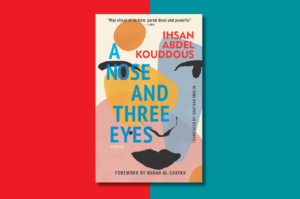
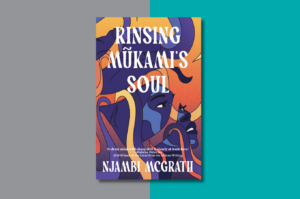
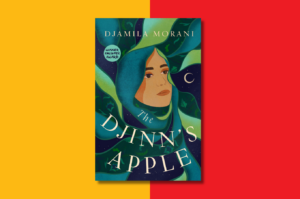
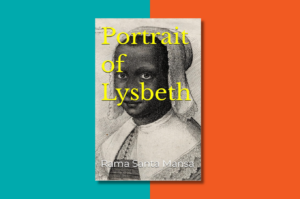
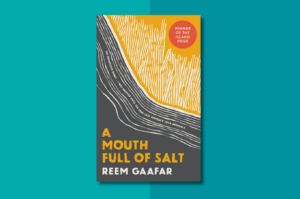
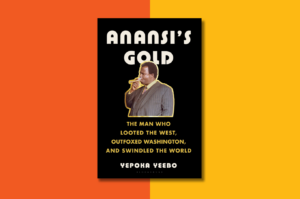

COMMENTS -
Reader Interactions